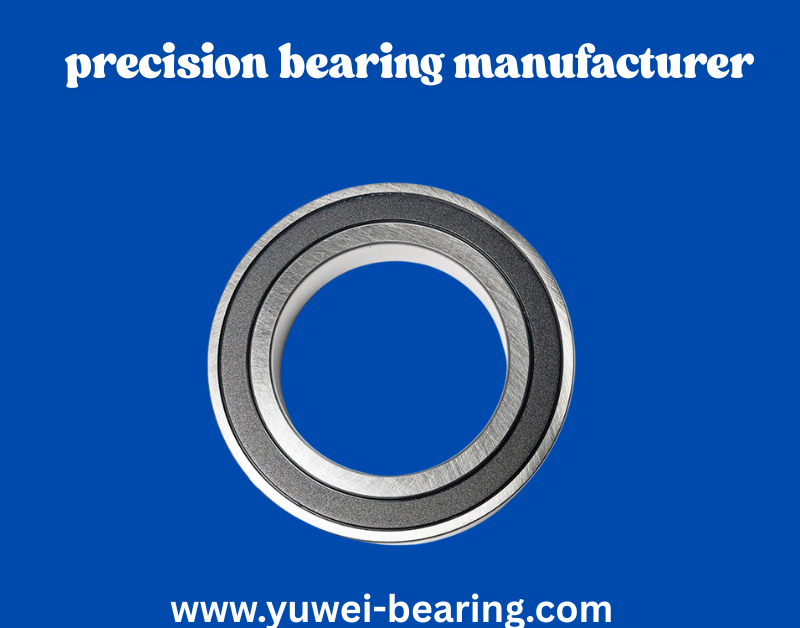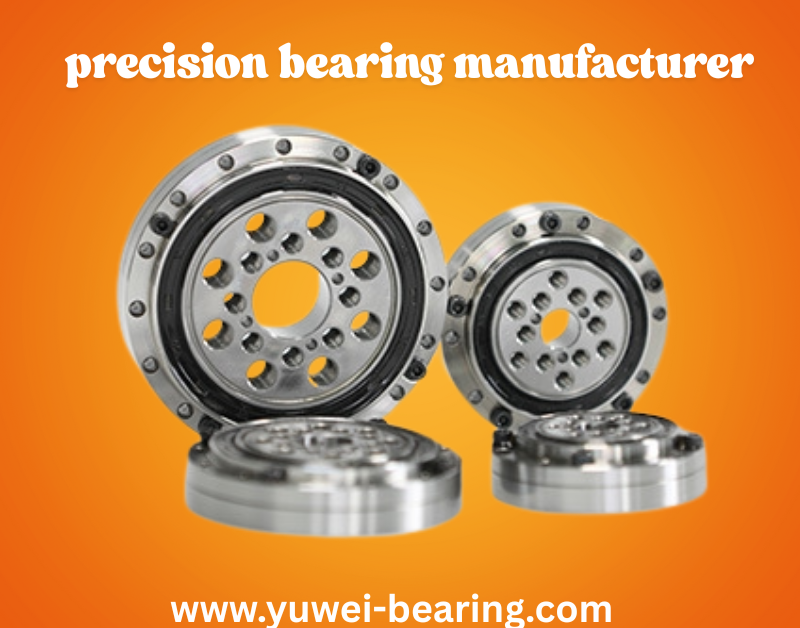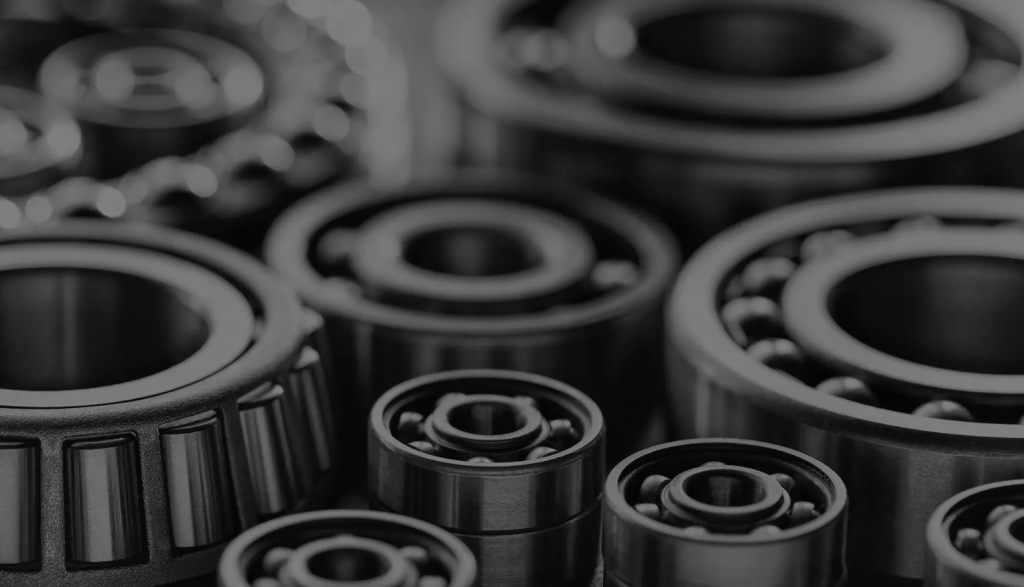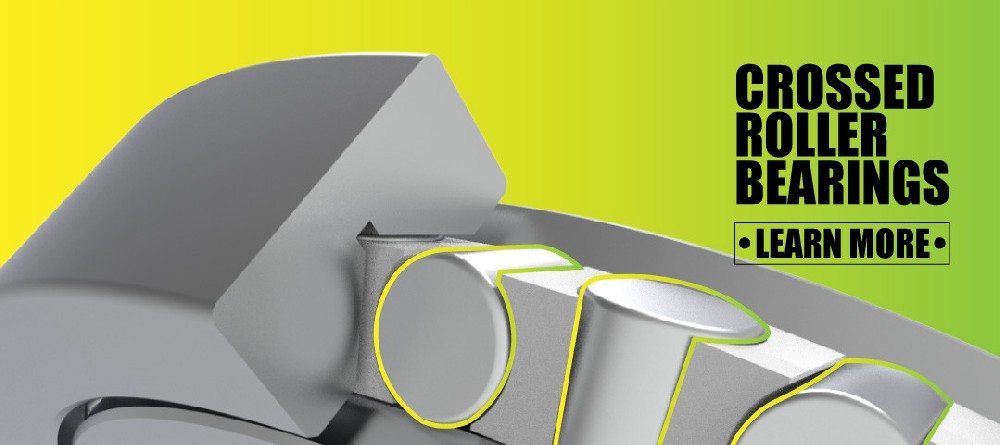Selecting the right precision bearing manufacturer is a crucial step for any engineer, procurement specialist, or operations manager working with high-performance machinery. Precision bearings are not just components—they are critical to ensuring accurate motion, reduced downtime, and optimal equipment lifespan. Whether you’re operating in aerospace, robotics, medical devices, or industrial automation, the performance of your entire system often depends on the quality of the precision bearing manufacturer inside. But with countless suppliers in the market, each claiming to offer “high precision,” how do you separate marketing hype from real manufacturing capability? From material sourcing and production tolerances to quality assurance and technical support, many factors influence whether a manufacturer can consistently meet your standards. Choosing the wrong partner can lead to premature failures, increased maintenance costs, and production disruptions that ripple across your operations. The goal isn’t just to buy bearings—it’s to build long-term reliability into your system. In this guide, we will explain how to identify and select the right precision bearing manufacturer to ensure top-tier performance for your critical applications.
Precision Bearing Manufacturer Selection Tips for Top Performance

In industries where machinery runs 24/7, precision isn’t optional—it’s critical. Whether it’s a robotic arm in an assembly line or a CNC machine carving aerospace components, precision bearing manufacturer are at the core of mechanical motion. The wrong bearing choice—or the wrong precision bearing manufacturer—can result in machine failure, lost time, and significant operational costs.
This article isn’t about fancy buzzwords or overused claims. It’s a practical guide built on proven experience and real-world insights. If you’re a plant engineer, procurement lead, or maintenance manager, the information below is designed for you. Let’s break down how to pick the right precision bearing manufacturer for consistent, long-term performance. Visit here!
Step 1: Understand What Precision Really Means
Precision bearings differ from standard bearings in that they offer tighter tolerances, greater control of dimensional accuracy, and enhanced surface finish. This translates into:
- Lower vibration levels
- Minimal runout
- Higher rotational accuracy
- Longer service life in high-speed applications
Why this matters:
In sectors like medical devices, aerospace, and robotics, even a slight deviation in bearing quality can lead to product failure or performance degradation. For instance, in satellite systems, a bearing error margin of 0.01mm can affect orbital alignment.
Before selecting a manufacturer, understand whether your application truly needs high-precision bearings. Don’t overpay for what you don’t need—but don’t settle for less if your system demands it.
Step 2: Evaluate Manufacturer’s In-House Capabilities
A dependable precision bearing manufacturer will not outsource their critical processes. Look for companies that handle:
- Heat treatment
- Grinding
- Super-finishing
- Cleanroom assembly
- Quality inspection
Case in Point: Yuwei Bearing (China)
Yuwei Bearing, a precision bearing manufacturer specializing in crossed roller bearings, has invested heavily in in-house production. Their ISO Class 7 cleanroom ensures zero contamination during assembly, and their grinding department works within 0.001 mm tolerance. These controls have helped them serve automation and robotics industries across Europe and Asia with minimal returns.
Action Tip:
During your supplier evaluation, request a factory tour (virtual or in-person), and ask for details on which parts of the process they manage directly. If they hesitate, that’s a red flag.
Step 3: Check for Industry Certifications and Quality Standards
Precision bearing manufacturing is governed by international standards such as:
- ISO 9001 (Quality Management)
- ISO/TS 16949 (Automotive-specific)
- ISO 13485 (Medical devices)
- AS9100 (Aerospace)
A reputable manufacturer won’t just hold one of these—they’ll integrate the standards into their daily workflow.
Data Snapshot:
In a 2022 industry review by Bearing News Magazine, 78% of top-performing precision bearing manufacturer had at least two industry certifications and conducted internal audits bi-annually.
What You Can Do:
Ask for audit reports, test protocols, and QA process documentation. Cross-verify these with your own application requirements.
Step 4: Evaluate Material Sourcing and Traceability
Material consistency plays a significant role in bearing performance. Bearings made from substandard steel often exhibit early fatigue, pitting, or failure.
Look for these signs of transparency:
- Origin of raw materials (e.g., SKF-approved steel mills, Japanese or German steel)
- Batch-level traceability
- Material test reports (MTRs) for each shipment
Example:
A U.S.-based food processing company reduced bearing-related downtime by 41% after switching to a manufacturer that used vacuum-degassed, high-carbon chromium steel and could provide full traceability on every batch.
Pro Tip:
Request a sample report for traceability and ask how long records are retained. Good manufacturers will store batch histories for up to 10 years.
Step 5: Ask About Customization Capability
Not all bearings are made from catalogs. Many high-speed and load-sensitive applications require customized internal designs, cages, seals, or coatings.
A competent manufacturer will offer:
- Engineering support for custom dimensions
- Simulation or design validation (e.g., CAD/FEM analysis)
- Material/coating alternatives (PTFE seals, ceramic balls, etc.)
Case Study: High-Speed Robotics Application
A European automation integrator required a thin-section precision bearing manufacturer with an angular contact design to support a robotic wrist joint at 6,000 RPM. Off-the-shelf products failed during testing. They partnered with a precision bearing manufacturer who custom-engineered a hybrid ceramic variant, improving life cycle by 3.2x.
What to Look For:
If a manufacturer offers design tweaks within 2-3 weeks and provides application engineering support, they’re invested in performance—not just volume.
Step 6: Scrutinize Lead Times and Supply Chain Resilience
A bearing is no good if it arrives two months late.
In today’s volatile global environment, reliable delivery matters as much as product quality. Your chosen manufacturer should demonstrate:
- Multi-tier supply planning
- Inventory buffer strategies
- Distribution support
- Clear lead time communication
Survey Result (2023):
According to a global manufacturing survey, 64% of companies switched bearing suppliers between 2020–2022 due to inconsistent lead times—not product faults.
Reality Check:
Ask how they handled the COVID-era raw material shortage. A good answer shows planning ability and operational maturity.
Step 7: Examine After-Sales and Technical Support
Even the most precise bearing may need replacement or consultation post-installation. That’s where support matters.
Evaluate whether the manufacturer offers:
- Post-sales documentation and manuals
- On-site technical consultation (even virtually)
- Failure analysis for returned products
- Warranty terms with clarity
Real-World Experience:
A packaging machinery OEM experienced repeated precision bearing manufacturer failures at high-speed rollers. While the supplier’s product passed specs, the root cause was improper preload. The manufacturer’s engineering team helped redesign the housing fit—solving the issue permanently.
This type of technical support is rare but crucial for high-performance systems.
Step 8: Reputation and Proven Track Record

Numbers don’t lie. Look for facts, not marketing fluff.
Ask for:
- Industries they’ve served
- Projects completed
- Export markets
- Retention rate for OEM customers
Example from the Field:
NSK, a long-standing precision bearing supplier, showcases real data: 200+ automotive OEM projects, 60+ years in the market, and bearing returns under 0.005% globally. This kind of performance data builds confidence.
Don’t hesitate to request customer references or third-party testimonials.
Step 9: Test Performance—Don’t Just Take Their Word
Lab testing is a manufacturer’s claim. Field testing is proof.
If you’re about to commit to a long-term supplier relationship, consider:
- Pilot run testing
- 100-hour endurance tests
- Vibration, noise, and thermal readings under actual load
- Long-term data tracking (RPM, load, failure cycles)
What You Learn:
These tests provide actionable data like actual bearing temperature rise at high speeds, load endurance over weeks, and lubricant behavior under real conditions.
Client Story:
A textile plant in Turkey used in-house testing to compare two bearing vendors. Despite similar specs, only one maintained performance above 90% after 180 continuous hours at 12,000 RPM.
Step 10: Total Cost of Ownership, Not Just Unit Price
A bearing that costs $5 less per unit but fails twice as fast costs you more. Always calculate:
- Downtime cost
- Maintenance effort
- Product life cycle
- Replacement frequency
- Inventory holding cost
Practical Math:
Let’s say Manufacturer A offers a bearing for $20 that lasts 6 months. Manufacturer B offers a $27 bearing that lasts 18 months. Over 3 years, you’ll replace A’s bearing 6 times ($120), and B’s just twice ($54). Add labor and machine downtime, and B is clearly more economical.
Bonus Tip:
Ask for a total cost comparison sheet. If they offer one, they’ve probably helped customers reduce long-term costs before.
Final Words: Choose Partners, Not Just Providers
Precision bearing manufacturing is not just about machines and metallurgy—it’s about alignment. Between your need for reliability and a manufacturer’s ability to deliver consistently.
Treat your selection process like a partnership:
- Involve engineers early
- Use a scoring matrix
- Do a site visit
- Run test orders
- Review annual performance
Great bearing manufacturers don’t just sell parts. They support processes. They reduce maintenance calls. They make your machines run better—and longer.
TL;DR—Checklist for Selecting a Precision Bearing Manufacturer
| Criteria | What to Ask |
|---|---|
| Manufacturing Process Control | In-house? Cleanroom? Surface finishing specs? |
| Certifications | ISO/AS/TS? Frequency of audits? |
| Material Traceability | Batch records? Source of steel? MTRs? |
| Engineering Support | Custom designs? Design validation tools? |
| Delivery & Logistics | Lead times? Buffer stock? COVID response? |
| Support & Warranty | Post-sales help? Failure analysis? |
| Reputation | Projects? OEMs served? Return rate? |
| Field Test Data | Endurance test? RPM/load cycles? |
| Cost Analysis | Total cost of ownership? Life cycle? |
If you’re ready to make a smarter decision about your bearing supply chain, these tips will steer you in the right direction. Because when performance matters, every detail counts.
Frequently Asked Questions (FAQs)
1. What is a precision bearing manufacturer?
A precision bearing manufacturer specializes in producing high-accuracy bearings with tight tolerances, superior surface finishes, and consistent performance for applications where standard bearings would not suffice—such as aerospace, robotics, and high-speed machinery.
2. How do precision bearings differ from standard bearings?
Precision bearings offer higher accuracy, smoother rotation, lower noise levels, and better load-handling capacity. They’re designed for critical applications where even minor variations in dimensions or balance can cause significant performance issues.
3. Why is manufacturer selection so important for precision bearings?
Precision bearings are only as good as the processes behind them. A reliable manufacturer ensures consistent quality, material traceability, tight tolerances, and proper lubrication—all of which directly impact machine performance and lifespan.
4. What certifications should a precision bearing manufacturer have?
Look for manufacturers certified with:
- ISO 9001 (General Quality Management)
- ISO/TS 16949 (Automotive)
- AS9100 (Aerospace)
- ISO 13485 (Medical)
These show the manufacturer adheres to global standards in quality and production.
5. How can I verify the quality of a precision bearing manufacturer?
Request documentation such as:
- Factory audit reports
- Quality inspection protocols
- Traceability data
- Sample product tolerances
Also, ask for a pilot batch or small production run for testing before large-scale purchase.
Conclusion
Selecting the right precision bearing manufacturer is a crucial step for any engineer, procurement specialist, or operations manager working with high-performance machinery. Precision bearings are not just components—they are critical to ensuring accurate motion, reduced downtime, and optimal equipment lifespan. Whether you’re operating in aerospace, robotics, medical devices, or industrial automation, the performance of your entire system often depends on the quality of the bearings inside. But with countless suppliers in the market, each claiming to offer “high precision,” how do you separate marketing hype from real manufacturing capability? From material sourcing and production tolerances to quality assurance and technical support, many factors influence whether a manufacturer can consistently meet your standards. Choosing the wrong partner can lead to premature failures, increased maintenance costs, and production disruptions that ripple across your operations. The goal isn’t just to buy bearings—it’s to build long-term reliability into your system. In this guide, we will explain how to identify and select the right precision bearing manufacturer to ensure top-tier performance for your critical applications.

